JESSIE PREZ
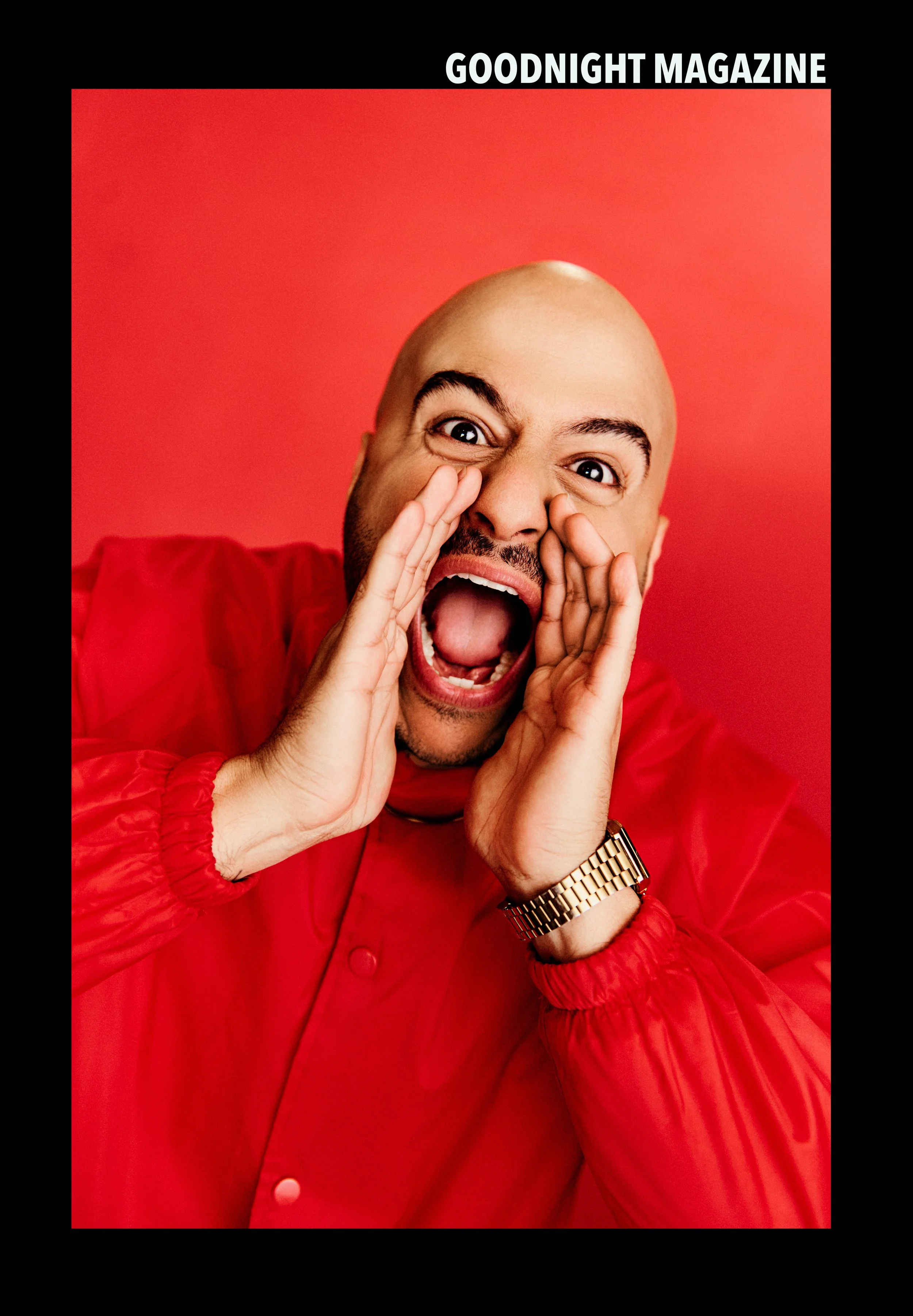
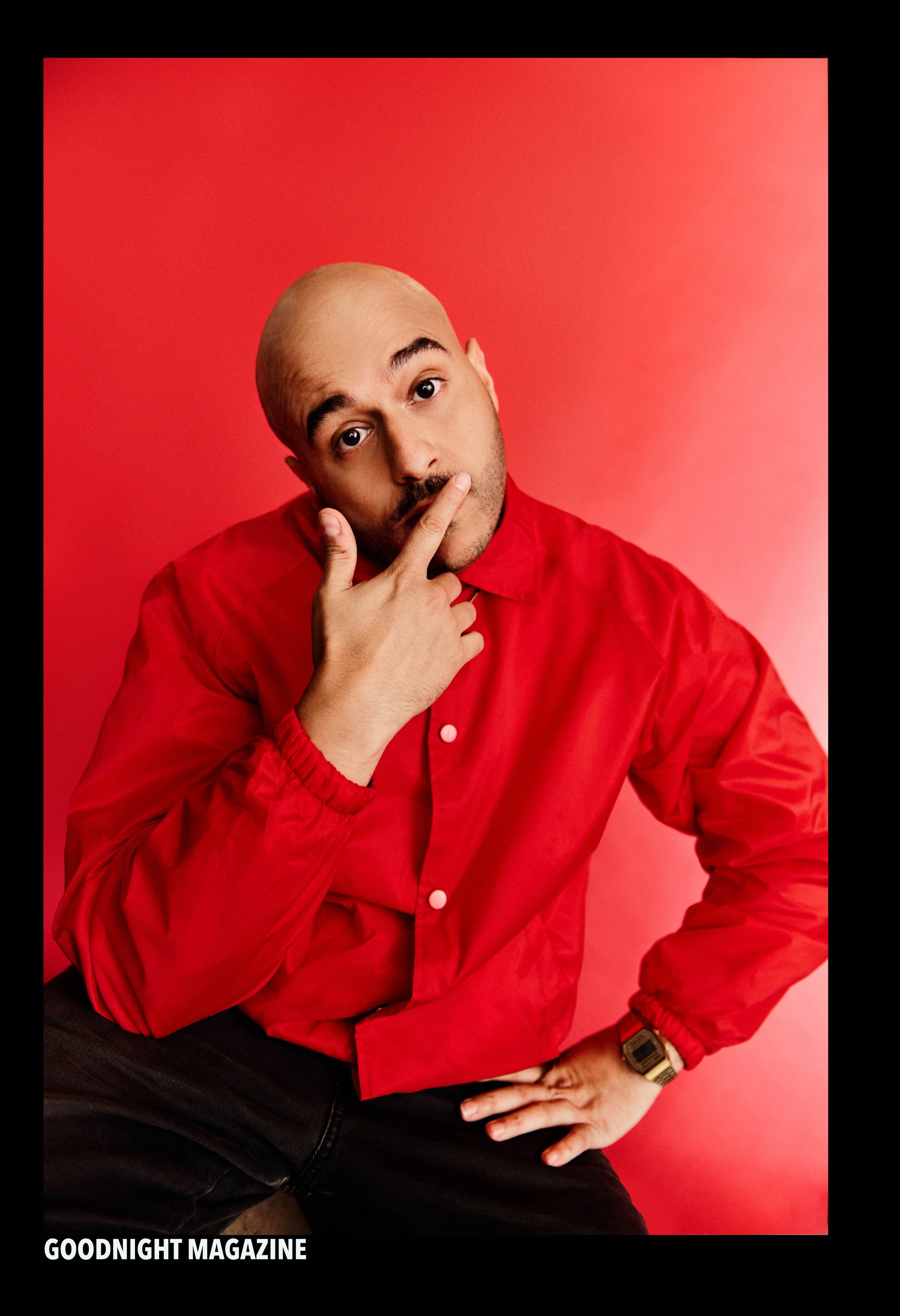
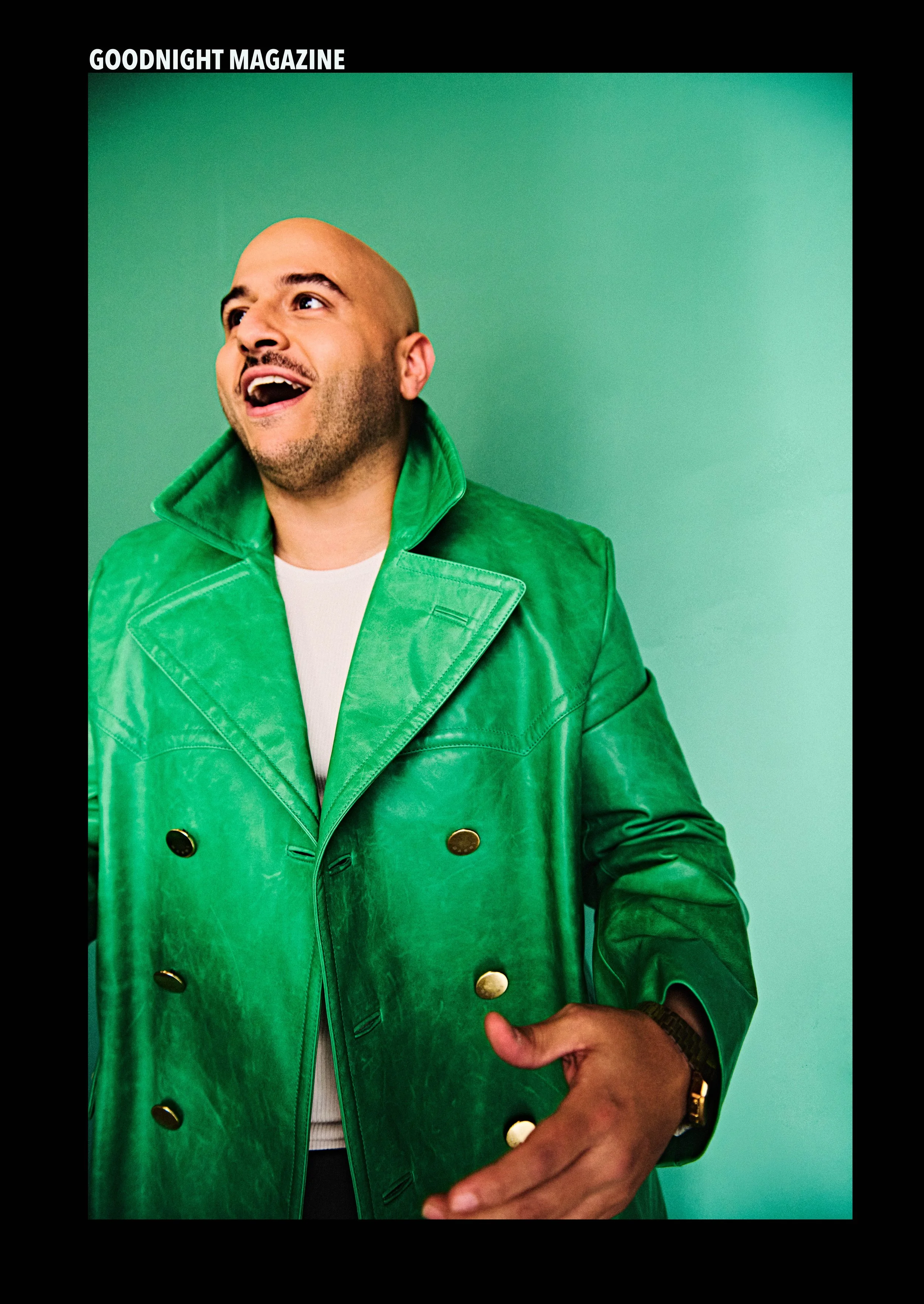
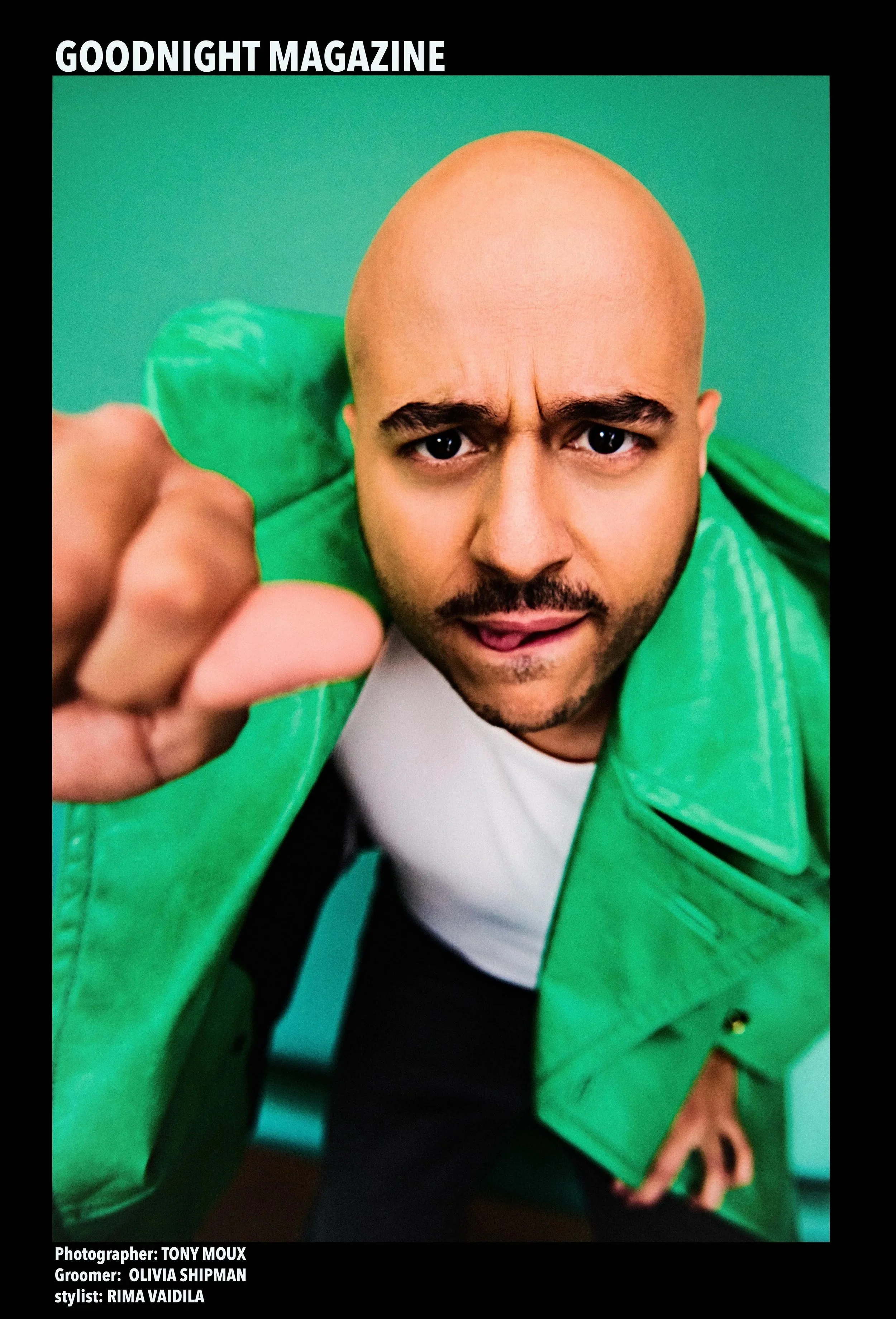
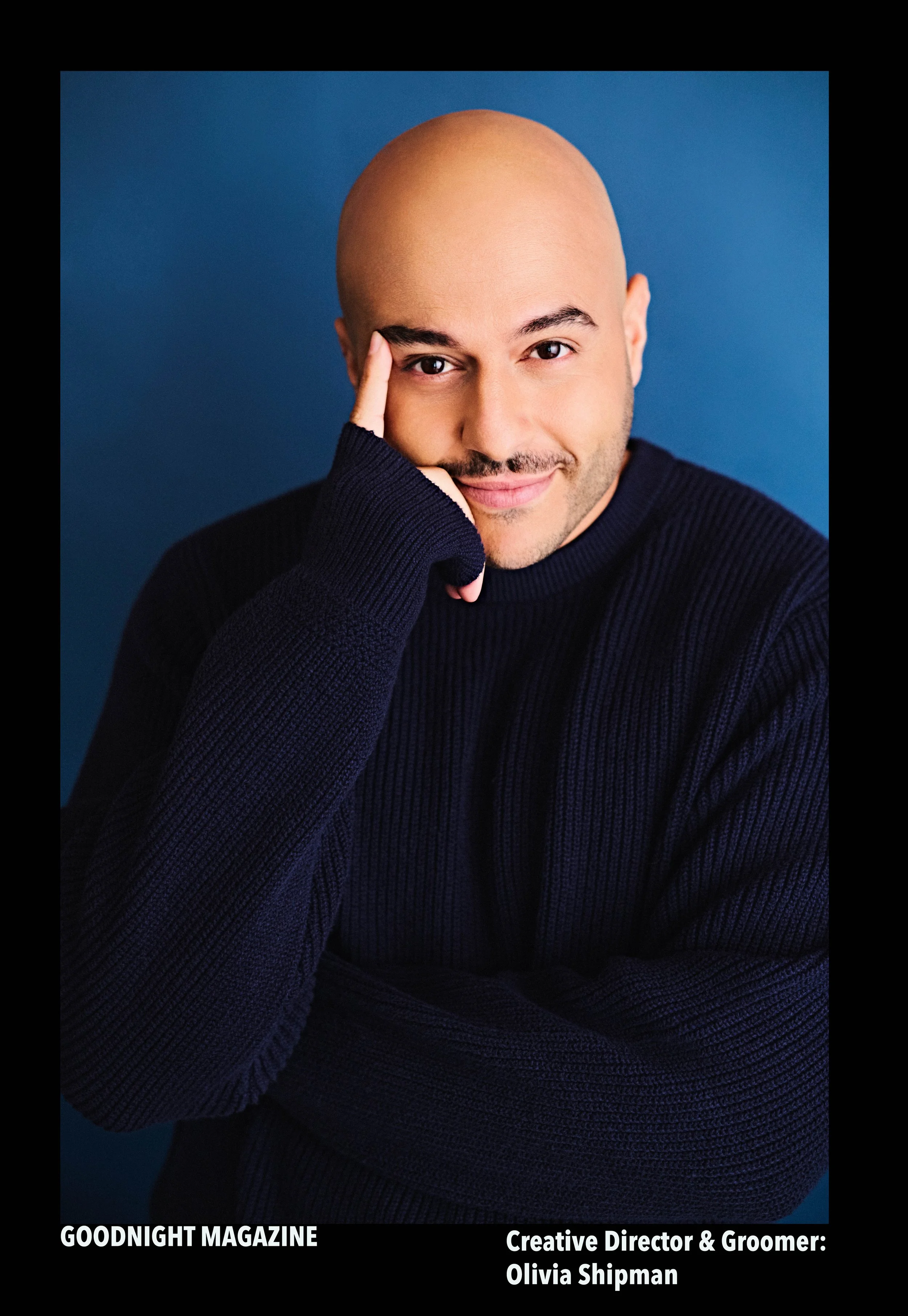
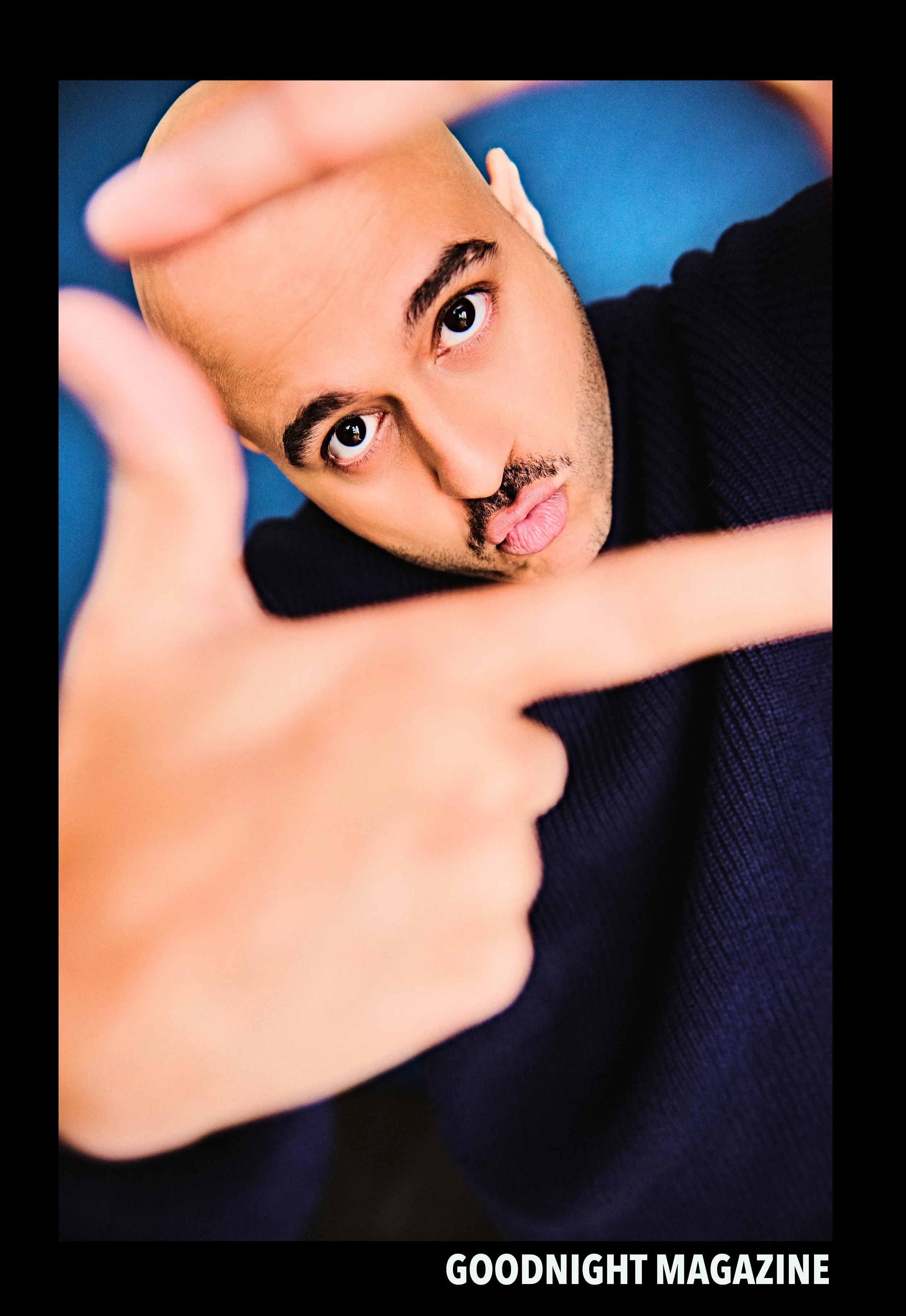
Q&A
GN: You began your artistic journey in Chicago’s storied storefront theatre scene, a place known for its raw authenticity. How did that environment shape you both as an actor and as a person?
JP: Storefront Theater was basically my college education. It shaped me as a human as much as it shaped me as an actor. It’s that space and community that opened me up to so many different perspectives and cracked me open as an artist. There’s nothing in the storefront that’s about commercial success. It’s all about what’s on the page and authentic artistic expression. That being the foundation of my work means everything, and has really set me up for success doing a network sitcom. It’s theater, it’s in front of a live audience, and I get nervous the same way I used to for my independent theater shows. That nervousness actually makes me feel at home, and I’m able to access those nerves as fuel for a grounded performance just like I did in Chicago.
GN: From Steppenwolf Theatre to network television, your career has traversed both stage and screen. Do you find one medium more artistically fulfilling, or do they each satisfy different parts of your creative spirit?
JP: Theater is about digging into the work and constantly pushing your limits within the same project. You have time to interpret and experiment. In television, you’re running and gunning your performance, and you have less time to ruminate on your choices. You have to make confident choices quickly and trust that they’re strong. What I love about the show I’m currently on, Georgie and Mandy’s First Marriage, is that we get to do a new play every week. So my creative spirit gets the best of both worlds, and I get to play to my strengths from theater in this TV world I’m lucky to be a part of. It all satisfies the adrenaline junky in me.
GN: In Georgie & Mandy’s First Marriage, Ruben evolves from a foil to Georgie into his business partner, creating both camaraderie and rivalry. How did you approach building this dynamic, and what excites you most about Ruben’s journey this season?
JP: When it comes to character development for this show, I really trust the writers. They’re very good at writing from real-life experiences, and Georgie and Ruben’s big bro/little bro dynamic was so clear to me from the beginning. I recognized it from my own life experiences, and I’ve just been applying that to our changing dynamic in season 2 so far. I’m most excited for the audience to get to know Ruben on a deeper level. His backstory is really cool, and there’s so much potential in those Easter eggs the writers planted for him in season 1. I want to see Ruben find his confidence in being a business owner, and I can’t wait to see how he fits into Georgie’s Dr. Tire empire as it grows.
GN: You also portrayed Sal Magluta in Netflix’s Griselda, a figure steeped in infamy. How do you balance the responsibility of portraying a real historical figure with the demands of dramatic storytelling?
JP: My experience playing Sal in Griselda was such an incredible experience. I would love to do more period projects in the future. I wasn’t too methodical with it because the show didn’t focus on his story so much. I wasn’t concerned about doing an exact impression of him. But researching and watching documentaries about him made prepping for the role really fun. What I cared more about was expressing his desire to be more than where he came from. He was young and hungry, and there was an opportunity for him. That was gangster as hell for me.
GN: Your body of work spans acclaimed dramas like Shameless and Bosch: Legacy to comedies such as Abbott Elementary. Do you find yourself drawn naturally toward specific genres, or is versatility itself what fuels your passion?
JP: I think comedy is drama. Comedy draws from painful shit. When I get an opportunity in comedy, I’m constantly asking WHY is my character funny? What have they survived and gone through? It all draws from the same well, so I’m down for it all.
GN: Representation in media continues to evolve, particularly for Latino and multicultural actors. How do you see your own career contributing to this broader conversation, and what stories do you hope to help bring forward?
JP: I’m Latino and Middle Eastern. Most of my opportunities have been to represent the Latin community, which I’m so proud of. I get a lot of fans showing up for Georgie and Mandy tapings who are excited to see me out there and tell me what it means for representation. I am so endlessly grateful that I get to have that impact. My hope and determination is to get more middle eastern actors on people’s screens because I think it’s seriously lacking. I want to see us on spaceships, in fantasy worlds, and in superhero franchises. And I want my family and families like mine to recognize themselves on mainstream TV and films.
GN: Chicago remains central to your story both as your hometown and the birthplace of your career. How does the city continue to inform your artistic voice today?
JP: Chicago is my lifeblood. It’s a city that works hard and expresses itself loudly. Chicago is all about grit, determination, swag, and confidence. It prepares you for difficult things, and if you can survive there, you can survive anywhere. I embody all of those things. I don’t think it could stop informing my artistic voice, or just my voice in general, even if I tried to shut that off. When you’re proud of where you come from, you’ll never let that place go.
GN: Many actors speak of a role that proved transformative for them, either professionally or personally looking back on your journey thus far, which character has challenged or changed you the most?
JP: My first role, in a play called Momma’s Boyz by Cándido Tirado, changed the trajectory of my life completely. I wasn’t an actor, and then it became my whole life. Shout out to Ricardo Gutierez and Eddie Torres for that one. But I will say, Ruben launched me into a different stratosphere as a professional working actor. He’ll always be the character that put me in the big show and taught me what being a pro is all about.
GN: Beyond the screen and stage, how do you ground yourself in the midst of a demanding industry, and where do you draw inspiration outside of acting?
JP: Honestly, my fiancé, my family, and my friends are amazing. My partner centers me and provides a peaceful home for me to return to. My Mom constantly reminds me of where I come from; she’s my rock and motivation. My friends make sure I don’t take my shit too seriously. I’m inspired by my people and my own journey thus far. There’s enough material there to fuel me for the rest of my life and career.
GN: As you look ahead, are there particular types of stories, collaborators, or roles you dream of pursuing projects that would mark the next great chapter in your artistic life? And what does GOODNIGHT mean to you?
JP: Every actor dreams of working with Spielberg, Nolan, Scorsese, or Tarantino. I’m really into what Ángel Manuel Soto is doing, and would love to get a meeting with James Gunn. I want to live in his world of DC badly. I think this face belongs in Gotham City!
GN: What does the term Goodnight mean to you?
GOODNIGHT, to me, means thank you for another day.
Courtesy of photographer: Tony Moux
Creative Director & Groomer: Olivia Shipman
Stylist: Rima Vaidila
